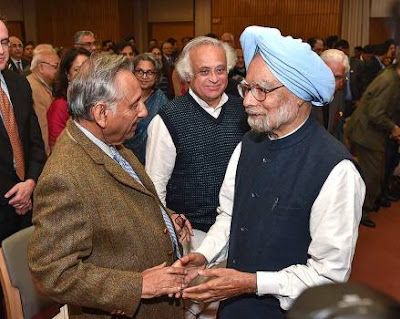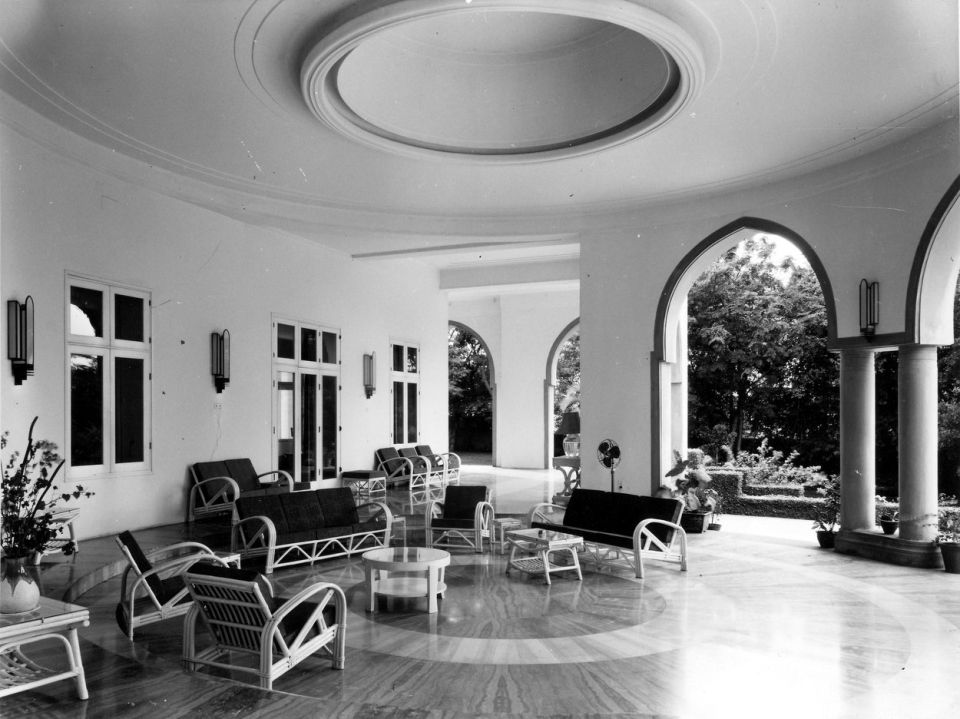Down Memory Lane with a Man with an Acerbic Pen
Mani Shankar Aiyar has been called many things but the word maverick fits him to a T. As one who never hesitates to shoot his mouth off, he has often landed himself and his party in trouble particularly vis-a-vis Prime Minister Modi.
His memoir had been in the making for some time now; and it doesn’t disappoint as it is written with his typical gusto. Aiyar gives you a glimpse of his early life – the loss of his father at the tender age of 12, his years in the Doon School, St. Stephens College and Cambridge, and so on.

Although his rank in the Union Public Services Commission (UPSC) Examination gave him the opt of joining the Indian Administrative Service (IAS) he preferred the Indian Foreign Service (IFS) to pursue his ambition of being a diplomat. Getting into the diplomatic corps was not without hiccups. As the Intelligence Bureau, after the mandatory verification of his background, had labeled him a Communist, his attempt turned out to be a bit of a merry-go-round as he had to to meet President S. Radahakrishnan, Home Minister G.L. Nanda and the Special Secretary in the Home Ministry, L.P. Singh (Aiyar’s account of the encounter with him is hilarious). However, after his name was cleared his career got off to a proper start. It fell upon his lot to work in the Indian missions at the European Economic Community in Brussels, Hanoi and Baghdad. In 1978, the Morarji Desai government decided to open a consulate in Karachi and chose Aiyar to head it as Consul General. His experience in this assignment is the most interesting part of his autobiography. He arrived in Karachi in December 1978, on the eve of certain tumultuous events like the declaration of Nizam-e-Mustafa (Rule of the Prophet) by President Zia-ul-Haq on February 01, 1979 and the execution of the former Premier Zulfiqar Ali Bhutto on April 4, 1979.
The muted reaction of the public to the hanging of Bhutto is well described in the book as also a record of those who had suffered during the autocratic regime of Z.A. Bhutto, which to some extent explains the indifference of Pakistanis, especially those in Karachi, to the hanging of a man who had ruled the country with an iron hand.

During Aiyar’s stay in Karachi, former High Commissioner Rajeshwar Dayal who visited Pakistan, told Aiyar that when he had been heading the mission in Pakistan Ayub Khan visited him in the aftermath of the 1958 coup that brought him to power. Ayub Khan, according to Dayal, offered a solution to the Kashmir dispute by which the existing borders would be left in their status quo position and the future generation would decide its status. This was on the lines of the 1955 agreement between Italy and Austria on South Tyrol. However the proposal never went through as Nehru was fearful of an adverse reaction from the Indian Army Chief General K.S. Thimayya. It is a pity that such a golden chance to settle the dispute was squandered.
On the subject of Pakistan, Aiyar writes on how the Morarji Desai government had decided to give the Jinnah House in Mumbai to Pakistan _ a decision annulled by Indira Gandhi when she returned to power in 1980. One is left wondering what would have been the trajectory of Indo-Pak relations had this happened.
The story of how he landed in the Prime Minister’s Office during Rajiv Gandhi`s rule after being the spokesman for the Non-Aligned Movement’s meet in Delhi is undoubtedly interesting. Like many other middle class persons, he was appalled that an Indian Airlines pilot with hardly three years’ experience in politics had been thrust into the top job as Prime Minister, little knowing that he would soon be working with him.

It was through a meeting with Arun Singh, the Parliamentary Secretary in the PMO and a close confidant of the Prime Minister (whom Rajiv called Roon, we learn), that Aiyar landed the appointment as a Joint Secretary in the same office. Aiyar denies that his Doon School and Cambridge link with the Rajiv Gandhi had anything to do with it.
Aiyar describes himself as the “Manager Travels and Tours” in the PMO. He did some speech writing for Rajiv Gandhi as well – he was in the team that drafted Rajiv`s well known speech bemoaning the fact that the party was in the hands of ‘power brokers’ who had to be weeded out. Unfortunately this never happened. Aiyar notes that most of those present at the venue when Rajiv delivered the speech were non-English speaking who applauded him out of formality without understanding the speech and later turned against him when they realised the import of what he had said. It was a pity that an opportunity to change the working of the grand old party was lost before it could be taken up. Probably Gandhi lacked the political experience to do so. He had probably acquired the maturity required later but his life was cut short by his assassination in 1991.

Writing about Arun Singh and Arun Nehru, both chief advisors of Rajiv Gandhi during his first years in power, Aiyar says both were as different as chalk and cheese. Arun Singh was sophisticated and principled, and Nehru was a typical politician for whom scruples mattered little. Aiyar largely blames Nehru for two things: first, his ‘active role in the anti-Sikh riots of 1984 as Rajiv Gandhi was busy with the funeral arrangements and the other ceremonies connected with the assassinated Prime Minister Indira Gandhi; secondly, his (Nehru`s) role in having the Babri Masjid-Ram Janmabhoomi controversy by getting the locks of the disputed structure opened by the local court in Ayodhya in cohorts with the local administration. The internal inquiry ordered by Rajiv Gandhi pointed to Nehru, leading to his exit from the government a few months later. The Ayodhya decision was taken as a reaction to the Muslim Women.
(Protection of Rights on Divorce) Bill which was passed after the Shah Bano verdict by the Supreme Court. It was a ploy to win over Hindu voters who were perceived to be moving away from the Congress following the Muslim Women Bill, which was portrayed as Muslim appeasement.
Aiyar gives a clean chit to his boss but one remains unconvinced as to why a person like Nehru was given such unlimited powers. The book ends with the author joining active politics in 1989 and his years in the opposition during the V.P. Singh regime and later the Chandra Sehkar government supported by the Congress. Political developments in that period led to the general election of 1991 during which Rajiv Gandhi fell victim to a human bomb. Aiyar has written an interesting memoir, but one can’t help disagreeing with him when he overplays the maverick bit in his writing.







